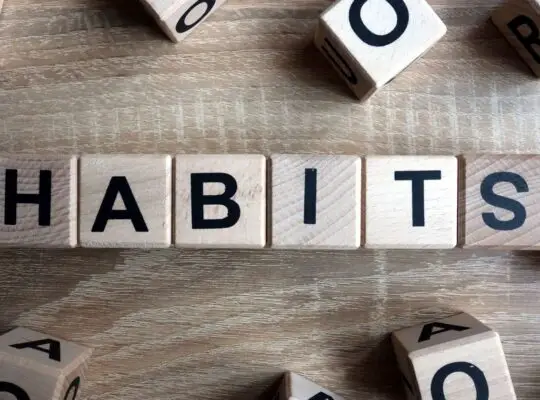A person’s self esteem is one of their most precious and valuable features. Having a strong and healthy self esteem is a key human need from which all else flourishes. When a person’s self esteem is healthy, every other aspect of their life becomes happier and easier to navigate.
Understanding why self esteem is important and how to cultivate a healthy one is a vital skill. If you suffer from low self esteem, understanding ways to strengthen and repair it is equally vital. To learn ways to cultivate it and maintain a healthy perspective about yourself, use this handy guide to begin navigating all the aspects of your self esteem.
What Is Self Esteem
The American Psychological Association defines self esteem as “the degree to which the qualities and characteristics contained in one’s self-concept are perceived to be positive.” In layman’s terms, a person’s self esteem level reflects how positively or negatively they view themselves. A person with high self esteem sees themselves in a more positive manner; a person with low self esteem sees themselves in a more negative manner.
Having a higher sense of self esteem is considered a key element in stable human mental health. When a person has low to no self esteem, they typically struggle with mental health challenges associated with having a negative perception of themselves.
This negative perception can be brought on or made worse by having low self esteem. Because having a healthy self esteem is a core need that affects how other aspects of life operate for a person, many areas of your life can suffer if you’re experiencing low self esteem issues.
Why Self Esteem Is A Key Human Need
Because having a higher self esteem is so closely tied to good mental health, it is considered a key human need.
In Maslow’s Hierarchy of Needs, a human’s need for a strong sense of self esteem is placed directly on top of needing to feel love and acceptance from others – about midway on his chart of human needs.
The bottom half of the pyramid-shaped chart is dedicated to deficiency needs while the top half is dedicated to growth needs. According to this model, the need for self esteem is one of the major deficiency needs that must be met before a person can move forward to meet their needs for personal growth.
Without a healthy, high level of self esteem, it’s difficult for a person to advance themselves forward in personal growth. When you have a negative outlook on yourself and who you are, finding the motivation or belief that you can accomplish goals and go after your dreams seems to fall flat.
A person with low self esteem may approach new challenges or situations with timidity or doubtfulness – before they even begin a new task, they may already assume that they’re going to fail at it. Because they have such a negative perspective of themselves, it causes the person with low self esteem to carry that same negativity into everything they do.
On the contrary, when a person has a high level of self esteem, they approach new opportunities, problems, and tasks with confidence. Having an overall positive attitude about themselves allows them to take on challenging roles with a strong belief in their own ability to get the job done.
Having that positive belief in themselves is an incredible fountain of internal motivation – because they view themselves positively, they not only try their best to find success, they also tend to accept failures with more grace and understanding because a person with high self esteem is also usually much kinder to themselves.
10 Ways Low Self Esteem Affects A Person’s Ability To Strive And Survive
Experiencing occasional bouts of low self esteem is normal. Unfortunately, there are a variety of reasons why a person may feel dips in their self esteem from time to time. For example, making a mistake or experiencing ridicule from others can cause a person’s self esteem to take the occasional drop.
These occasional blips in an otherwise healthy, high self esteem are typical for everyone. However, if a person’s self esteem is consistently low or nonexistent, bigger, more serious issues can arise.
1| Having low self esteem can make existing mental health issues feel worse (or cause new ones to develop).
When a person has consistent feelings of low self esteem, it can make stress and anxiety levels skyrocket. Having persistent doubts in your ability to accomplish something sends a panicked yet firm message to your brain: “You can’t do this” or “You aren’t good enough to do this.”
With this constantly running spool of negative self talk moving through your mind, it’s easy to see why low self esteem can cause a person to experience new or worsening mental health problems.
2| Having low self esteem can damage a person’s professional and/or academic performance.
When you have low self esteem, you don’t have much faith in yourself to do a good job. This constant negative perspective of yourself perpetuates unkind and untrue thoughts about yourself and your ability to advance yourself.
If you have these unkind and untrue thoughts running through your mind every time you try to participate in your professional and academic pursuits, your ability to accomplish anything is greatly diminished. It’s tough to focus and push yourself to work hard if a nagging voice deep inside your mind doesn’t believe in your ability to get the job done.
3| Having low self esteem can ruin existing relationships with others and make it challenging to develop any new ones.
Having low self esteem makes it a challenge to maintain happy relationships. If you have a constant and negative perspective of yourself, it affects your ability to socialize in an effective manner.
You may find it difficult to communicate your thoughts, feelings, and opinions with your friends and family members, for example, because deep down, you don’t believe what you have to say matters much at all.
On top of your existing relationships, low self esteem can make it feel difficult (if not impossible) to form new relationships. Instead of making new friends and establishing new professional connections, your low self esteem may convince you that these new people don’t have time for you or won’t find you very interesting.
You may approach the potential for a new relationship with a “why bother” attitude. Since you don’t see much positive value in yourself, you assume everyone else also values you in the same way, making it a challenge to establish new relationships.
4| Having low self esteem makes achieving life goals and dreams feel impossible.
Reaching a big goal or making a lifelong dream come true is a big deal – doing so requires a lot of hard work, dedication, and belief in oneself to get the work done to make something like that happen. It’s already a challenging pursuit, but for a person with little to no self esteem, it can feel downright impossible.
Think of your self esteem as a permission-granting entity within yourself. A person with high self esteem gives themselves permission to go after their big goals and dreams constantly. A person with low self esteem never gives themselves this basic clearance to go after something bigger and better – before they can even begin working toward a big goal, their internal dialogue is already rejecting the notion of giving it a try because a person with low self esteem can’t picture themselves being successful or achieving a big goal.
5| Having low self esteem makes a person more vulnerable to fall into the wrong crowd.
People with low self esteem tend to be malleable by negative outside forces. This means that they can be easily swayed into behavior patterns that could be potentially dangerous or harmful for them by people who don’t have their best intentions at heart.
A person with little to no self esteem lacks the self respect to say “no” to people introducing them to abusing substances such as drugs and alcohol or other dangerous behaviors. Instead of seeing the value in protecting themselves from the dangers of falling into the wrong crowd of people, a person with low self esteem may mistake this kind of attention for a false sense of acceptance and belonging.
Instead of making the positive and healthy choice of separating themselves from harm, they fall into this crowd and begin doing what everyone else is doing – even though it’s harmful to their minds, bodies, and spirits.
6| Having low self esteem can cause some people to physically harm themselves or participate in other unhealthy, harmful behaviors.
Lacking self esteem can lead to some harmful, self destructive behaviors. For example, a person who has little to no self esteem may fall into behavior patterns that involve physically harming themselves (i.e.; cutting, burning, slapping their own skin).
Besides this extreme, having little to no self esteem can also lead to other unhealthy and harmful behaviors, such as overeating or overindulging in alcohol. Rather than listening to your body when you feel full or that you’ve had enough, you may continue to eat or drink as a means to silence or dampen difficult thoughts or emotions.
7| Having low self esteem causes you to lack trust in yourself.
When you live your life with low self esteem, you lose the ability to trust in yourself. If you already don’t value yourself or have much confidence in your personal abilities, it’s challenging to feel like you can trust yourself to make good choices, look after your needs, and do what’s right for yourself. Not only does a lack of trust in yourself affect your ability to make good choices and advance yourself in life, but it also affects your ability to really care for yourself.
8| Having low self esteem can turn you into a chronic people pleaser.
If you suffer from low self esteem, you probably aren’t getting much happiness or support from yourself. Sometimes this causes people to seek happiness through the acceptance or praise given by others. This can turn into a chronic people pleasing habit that’s difficult to shake.
Chronic people pleasers feel pressured to always do whatever they can to make other people feel good – even if it’s at their own expense. If you find yourself regularly ignoring your own needs and feeling like you don’t deserve good treatment in favor of doing extra work or nice things for others, your low self esteem may be causing to seek happiness via people pleasing rather than caring for your own needs.
Doing nice things for others can make you feel good, but if it’s acting as a complete replacement for taking care of yourself and boosting your feelings about yourself, you may be entering people pleaser territory.
9| Having low self esteem causes you to ignore your own boundaries.
Having low self esteem means that you have a negative outlook about yourself. You may feel that your personal needs and preferences aren’t very important. This incorrect notion often leads people to feel like their boundaries aren’t important.
Instead of feeling comfortable enforcing their boundaries with others, their low self esteem allows them to believe that their boundaries aren’t important or worth respecting, so they don’t communicate about them.
10| Having low self esteem makes your overall life feel out of control.
A low sense of self esteem ties into nearly every aspect of your life. When you don’t feel that you deserve respect, either from yourself or from others, it’s tough to feel like you have any say or control over anything happening to you.
Besides feeling like your personal boundaries are being invaded, having low self esteem can make you lose motivation to do much of anything – instead of seeing yourself move upward in life, things may feel like they’re spinning chaotically with no sense of direction.
What Causes People To Develop Low Self Esteem
People can develop a low sense of self esteem at any point in life. Everyone experiences dips in their self esteem occasionally; some cases of low self esteem persist longer than others. There are a variety of reasons that cause people to develop low senses of self esteem.
Understanding some of those reasons and how they can affect people differently helps paint a more accurate picture of why some people experience issues with their self esteem.
Case Study 1: Understanding a Person with High Self Esteem
In this first case study, consider Pamela. Pamela has been a teacher for ten years. In those ten years, she’s been recognized for multiple awards, has made hundreds of positive teacher-student relationships, and genuinely enjoys being an educator.
Pamela’s job is difficult, but she manages to stay positive and finds innovative and effective ways to work with her students and colleagues in ways that gather great results in the classroom. Even when the work gets challenging in her school, she finds a way to have a positive perspective and always finds a unique way to turn a tough situation into something better for everyone involved.
When Pamela was studying to be a teacher, she had many mentors who celebrated her strengths, helped hone her talents, and encouraged her to keep pushing herself. Besides her educators, Pamela also had the support of her family throughout school – as a first generation college student, Pamela was fortunate to have parents who always believed that she would be the first person in the family to graduate from college and encouraged her to always do her very best.
Pamela still has a supportive and loving relationship with her parents. Besides her family, she also has a strong network of close friends and coworkers. She spends lots of time with her friends and family; they’re very well bonded and all exhibit a strong sense of belonging within their respective groups.
Pamela believes wholeheartedly that it’s OK to make mistakes – she even teaches this important belief to her students. She understands that mistakes are always learning opportunities and she values the opportunity to take new knowledge into the future with her.
Any time she makes an error, she finds this positive side of things, remembers her personal worth, and pushes forward on her pathway to success.
Although Pamela loves her job, she has dreams to go even further in the education world. Eventually, she wants to return to school so she can become a principal. She believes she has the skill set that would help her become a great administrator. Her coworkers, friends, and family support her vision for herself and encourage her to explore her opportunities for future advancement.
Pamela’s self esteem was typically high. She was surrounded by supportive and caring people throughout her life and well into adulthood. Because she was raised to believe that she could do whatever she put her mind to do, had plenty of support at home and at school, and continued to visualize and pursue her goals, she was able to maintain a strong self esteem, even when life was challenging.
Case Study 2: Understanding a Person with Low Self Esteem
In this second case study, consider Brett. Brett had a tough childhood. No matter what, he never seemed to be able to make many friends. When he did manage to make a friend, the relationship never seemed to develop into anything really special or meaningful, like a best friend. It was tough to make good friendships when you had to change schools so many times, and because Brett and his mom had to move so frequently, he never really mastered that skill.
Brett’s father wasn’t a part of his life. He left his mother when he was too young to remember him, so Brett’s mom raised him alone. This required her to work multiple jobs to ensure they had rent and grocery money, so she wasn’t usually around when Brett needed help with something, like his homework.
All throughout school, Brett not only had a hard time adjusting because of his difficulty making friends, but also his grades. Since he moved schools often, he didn’t form strong relationships with teachers (or even get to stick around long enough in his classes to feel like he was “getting” what was being taught).
Sometimes different schools lost his records between moves, making it seem that he didn’t earn the proper number of credits to advance onward in his grade level. This was frustrating – in some classes, he felt like he knew everything already, and in others, he felt totally lost.
Brett’s self esteem typically remained low – it was difficult for him to believe in himself and show himself positivity when he didn’t have much support from others. Brett’s poor experiences at home and at school led him to develop a poor sense of self esteem.
9 Strategies To Improve Low Self-Esteem
A low self esteem doesn’t have to be a permanent state. If your self esteem is feeling low, whether it’s been a long term or experience or a relatively new occurrence, there are strategies you can use to bolster it and make it stronger.
Learning to view yourself in a more positive light can take lots of time, practice, and patience (especially if you’ve been in a state of low self esteem for a long time), but it is possible to achieve! To get started, consider the following strategies:
1| Learn to identify and challenge your negative thought patterns.
When you experience mostly negative thoughts, they begin to feel natural and normal. Begin identifying your negative thought patterns by “calling them out” for what they really are – distorted (and usually untrue or exaggerated) thoughts about yourself!
For example, consider the following negative, low self esteem thought:
“I never do anything right!”
Now, challenge that negative, untrue thought with the facts.
“That’s not true. Sometimes I make mistakes. Saying that I never do anything right is a big exaggeration. For example, I learned a new task at work today and did it fine on the first try. I completed a household task earlier this morning without making a mistake, etc.”
The challenge to that negative thought identified the untruths of the thought, pointed out factual evidence proving why the negative thought was untrue, and provided positive support.
2| Make a list of 10 things you genuinely like about yourself.
Grab your pen and pencil (or even the note taking app on your cell phone) and make a list of 10 things you really, truly like about yourself. If you aren’t used to praising yourself or considering your own positive features, this may take a little while to brainstorm, and that’s OK!
The 10 things you choose to write down don’t have to be anything specific or huge. In fact, you can choose very basic, simple aspects of yourself that you like.
Do you make a great breakfast? Are you gifted with wonderful handwriting? Are you an extra kind and generous person? Are you good at being on time?
Whatever your 10 things are, include them on your list! Revisit your list often when you need a self esteem boost, and remember to add a new thing or two every so often to keep your list growing and fresh.
3| Learn the value of saying “no.”
If your low self esteem causes you to be a chronic people pleaser, it’s time to learn how to prioritize your personal boundaries. Practice saying “no” to the next person who requests something from you that’s going to be difficult or inconvenient for you to do.
For example, if your coworker is begging for your help with their big project, but you don’t really have the time to assist them….tell them no! Protecting your own personal time is important – you likely have your own projects to finish and cannot always dedicate your time to someone at the drop of a hat.
The next time you’re faced with a situation where you need to say no to protect yourself, your time, or your sanity, allow yourself to face the discomfort of saying no. The more frequently you practice saying it, the easier it will become to respect yourself and your time.
4| Create a positive morning affirmation to repeat.
Affirmations, or short, positive phrases used to reinforce and internalize a good thought within yourself, are excellent tools for cultivating healthy self esteem. A great time to repeat an affirmation to yourself is first thing in the morning.
You can write down your chosen affirmation and attach it to your bathroom or closet mirror – as you get ready for your day, read your affirmation out loud to yourself and repeat it a few times.
The more frequently you repeat your chosen affirmation to yourself, the more real and natural it feels. Saying these types of positive, kind things to yourself is an excellent way to boost your self esteem early in the day.
5| Take time to focus on your physical health.
Has it been a while since you participated in exercise? Have your eating patterns been spotty and questionable lately? If so, focusing on your physical health is another great way to achieve healthier self esteem levels.
This does not mean resorting to extreme dieting, exercising, or weight loss plans. If your self esteem issues are rooted in bodily insecurities, this suggestion for boosting self esteem is not about causing your body harm through punishments.
Instead, focusing on your physical health should center around basic tenements of eating and moving in a way that makes your body feel good – no grueling, difficult workout routines here (unless you like to exercise hard!).
Instead, focusing on your physical health can look like….
- Taking a relaxing walk each evening to get some extra movement into your day
- Remembering to eat a filling breakfast before leaving home in the morning
- Packing your water bottle so you can refill it and stay hydrated all day
- Packing extra snacks so you don’t get caught hungry during the day
- Signing up for a yoga class so you can stretch, breathe, and meditate
- Taking a nap in the middle of the day if you’re feeling extra tired and need a boost
- Listening to your body when you’re feeling hungry, full, overworked, and/or tired
6| Identify the positive and negative relationships in your life – and handle them accordingly.
Identifying which relationships in your life are positive and which are negative can help you determine which ones are best for supporting your self esteem. Simply put, spending time with positive people is a self esteem booster, and spending time with negative people is a self esteem killer.
If you notice that certain relationships in your life are negative, learn to handle them in a way that creates distance for you. In some situations, this means cutting that relationship out of your life entirely (hello, toxic people). In other cases, it means putting limitations and boundaries on your time with that person. Learning to navigate difficult and negative relationships is an important step toward boosting your self esteem.
Once you begin to control how (and if) those negative folks get to interact with you, you’ll find it easier to maintain a higher sense of self esteem.
7| Allow yourself to accept a compliment.
Picture this scenario: A coworker compliments your outfit. Do you tell them thank you or deny that the outfit looks as nice as they say it is?
People with low self esteem often have trouble accepting compliments. The next time someone you know pays you a compliment, allow yourself to simply say “thank you.” Practicing accepting compliments is a self esteem booster – it’s healthy and natural to enjoy positivity from other people. You deserve to hear kind words from others, so allow yourself to accept them and enjoy them!
8| Celebrate your wins no matter how big or small they are.
Did you totally ace a presentation? Did you land a new job? Did you make it to work on time today? Did you make an excellent dinner? No matter what you did well today, let yourself celebrate it!
Celebrating your wins doesn’t necessarily need to be a big, over-the-top affair, but you should certainly acknowledge that you did well and let yourself be proud of it! Doing well deserves some self love and complimenting. Doing so is an excellent boost to your self esteem.
9| Give yourself the best friend treatment.
Consider the way you speak to your best friend. When they’re having a rough day, what do you tell them? If they need words of encouragement, what do you choose to say to brighten their spirit?
Speaking to your best friend in a kind, gentle, and calming tone feels natural – you probably treat them this way without even thinking about it first. It’s time to give yourself the same type of best friend treatment!
Above all the other relationships you form in life, the one you make with yourself is the closest and most valuable one you’ll nurture. If your self esteem is low, it’s time to start treating yourself the same way you would treat a best friend. In a sense, you are your truest best friend – nobody will understand you the same way you do.







